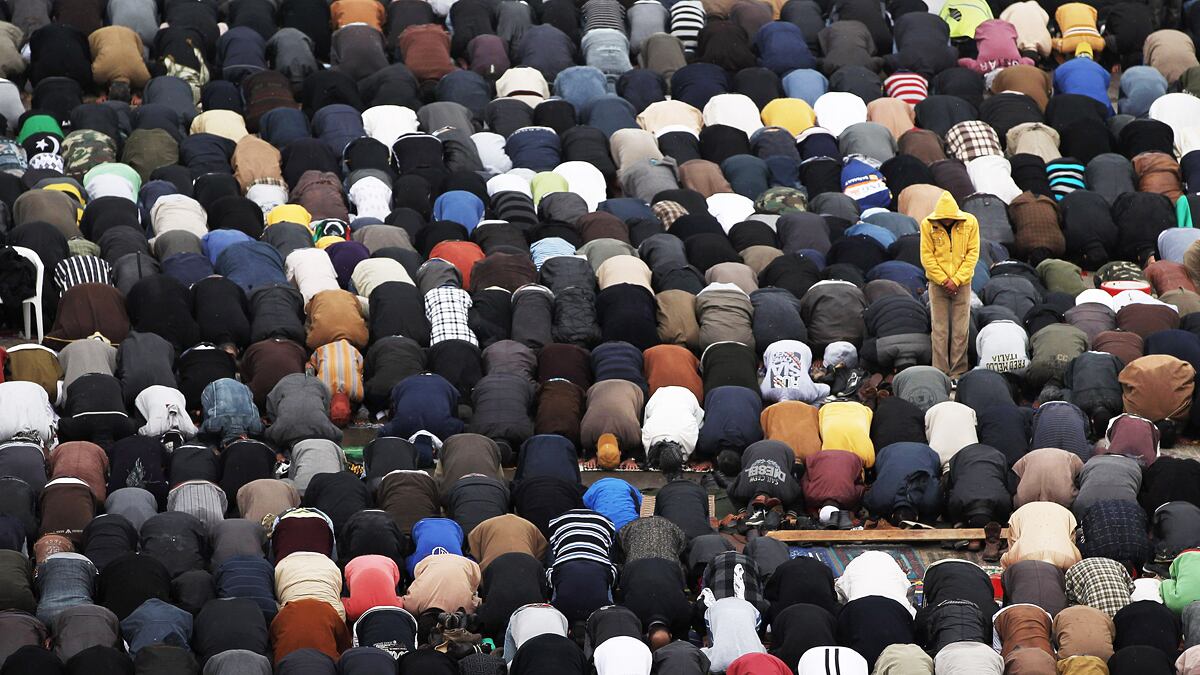Under ordinary circumstances, life across the Middle East comes to a grinding halt during Ramadan, the holy month observed with a daily cycle of fasting and feasting. Businesses usually keep only half-day hours, and many people are lethargic from skipping meals (and staying away from coffee and cigarettes) during the day. That’s about to change.
This year, Ramadan, which begins this coming Monday in most places, will give tens of thousands of activists—stretching from Tunisia to Libya, Syria, Egypt, Yemen, and even Bahrain—an excuse to gather, organize protests, and pressure their governments for change. “[Protesters] will be out every night during Ramadan,” says Wissam Tarif, director of the Syrian human-rights group Insan, referring to the unrest in Syria.
And there’s very little that the region’s despots can do about it. Ramadan is meant to be a time of piety and spiritual reflection. For millions of Muslims around the world, it’s also a time to give donations to the poor and help the downtrodden. Any sort of violence during the holy month is seen as sacrilege. Even the most secular regimes, such as President Bashar al-Assad’s in Syria, can’t ignore that.
The opposition understands this point well and plans to use it to its full advantage. The Local Coordination Committees, the activist groups pushing along the uprising in Syria, have already come up with their Ramadan slogan: Futour (breaking the fast), Tamr (dates—the food eaten when the Ramadan fast is broken), and Manshour (political leaflets). The idea is that each night, during gatherings to break the fast, opposition activists hand out political leaflets to spread their message to a broader audience and organize protests. “We don’t need to mobilize people,” says Rami Nakhle, a 28-year-old Syrian activist widely known by his pseudonym, Malath Aumran. “People are already mobilized during Ramadan. They will speak out against any injustice. It will be like every day is Friday. And it will be a big, big, big challenge for the Syrian regime.”
The opposition activists are setting their sights high. They are hoping that the Ramadan activism will lead to defections among the Syrian Army and the shabiha, the plainclothes militias that have attacked protesters. They are also hoping that many fence sitters—a group Nakhle refers to as the “silent majority”—will also rally to the cause. Any crackdown by the government, which is led by the minority Alawite sect, could inflame sectarian tensions among the Sunni community, who make up the bulk of the protesters.

In Egypt, activists are planning to turn Tahrir Square, the heart of the protest movement, into a place for carnival-like gatherings each night, to highlight their unmet demands. Colorful banners commemorating Ramadan have already been strung up. “[We will] sing songs, perform small plays to raise awareness in a light-hearted way and schedule monologues [to discuss] ideas,” says Islam Sayed, a 20-year-old blogger and activist. A number of well-known bands have signed up to perform in the square.
Other groups are going to use the nightly Ramadan gatherings to rally support for their party and raise awareness about the elections coming up in the fall. Mohammed Amin, a 24-year-old youth leader with the Democratic Front Party, says one of the main focus points will be to encourage a clean break from the corrupt practices of past elections, such as bribing for votes. “We need to make [people] understand that taking money will not work in their favor,” he says.
In neighboring Libya, though, the rebels opposing Muammar Gaddafi will be facing a much grimmer task than their reform-minded counterparts across the region. French Foreign Minister Alain Juppé has already warned that NATO will not ease its military campaign against Gaddafi during Ramadan. Neither will the rebels, for that matter: They are reportedly gearing up for a major military offensive in the western mountains.
Opposition activists should take note: Authoritarians may be planning their own Ramadan surge. A Yemeni official has claimed that President Ali Abdullah Saleh, who was badly wounded in a bomb attack last month, is planning to return before Ramadan begins. And the Egyptian Army has tried to curry favor with the public by reportedly distributing food in poor neighborhoods of Cairo to help them prepare for Ramadan feasts.
With temperatures and political tensions rising across the region, this year’s Ramadan is going to be a scorcher.
With reporting by Mandi Fahmy in Cairo






